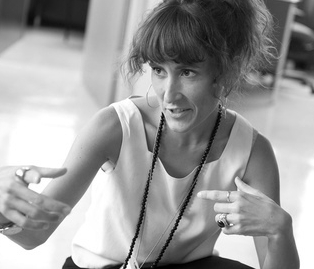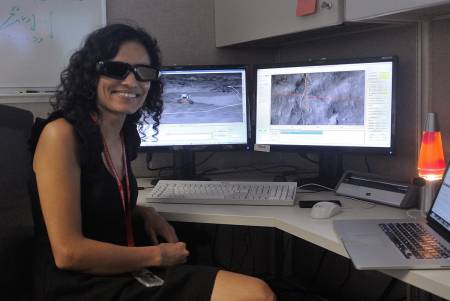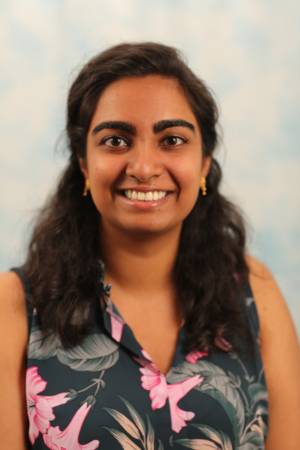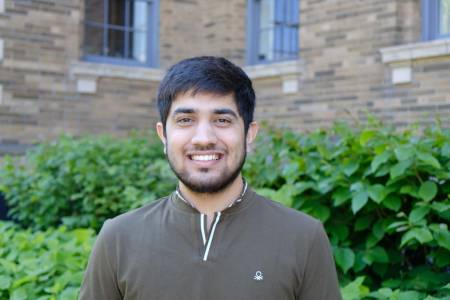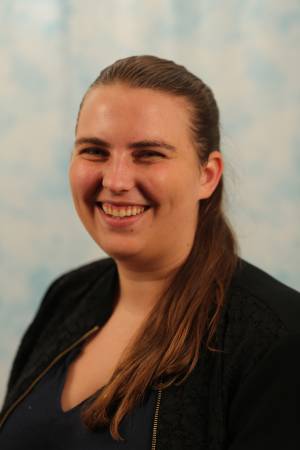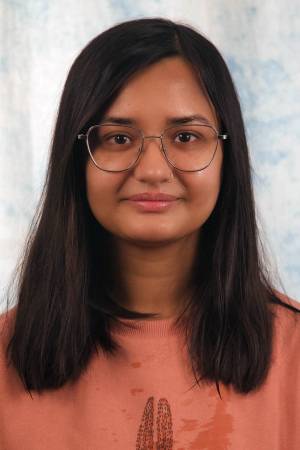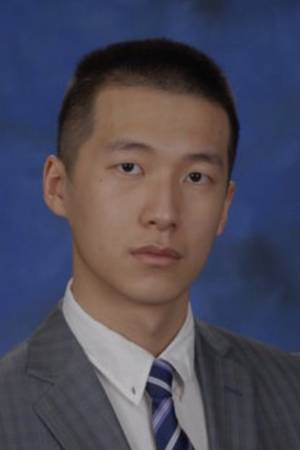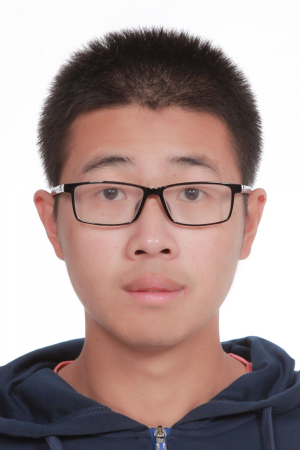Teruko Yata Memorial Lecture : Mobility and Manipulation Independence with Interface-Aware Robotics Intelligence
Dr. Brenna Argall is an associate professor of Mechanical Engineering, Electrical Engineering & Computer Science and Physical Medicine & Rehabilitation at Northwestern University. Her research lies at the intersection of robotics autonomy, machine learning and human rehabilitation. She is director of the assistive & rehabilitation robotics laboratory (argallab) at the Rehabilitation Institute of Chicago (RIC, [...]
RI Faculty Business Meeting
Meeting for RI Faculty. Discussions include various department topics, policies, and procedures. Generally meets weekly.
Mars Robots and Robotics at NASA JPL
Abstract: In this seminar I’ll discuss Mars robots, the unprecedented results we’re seeing with the latest Mars mission, and how we got here. Perseverance’s manipulation and sampling systems have collected samples from unique locations at twice the rate of any prior mission. 88% of all driving has been autonomous. This has enabled the mission to [...]
Continually Improving Robots
Abstract: General purpose robots should be able to perform arbitrary manipulation tasks, and get better at performing new ones as they obtain more experience. The current paradigm in robot learning involves training a policy, in simulation or directly in the real world, with engineered rewards or demonstrations. However, for robots that need to keep learning [...]
Carnegie Mellon University
Parallelized Search on Graphs with Expensive-to-Compute Edges
Abstract: Search-based planning algorithms enable robots to come up with well-reasoned long-horizon plans to achieve a given task objective. They formulate the problem as a shortest path problem on a graph embedded in the state space of the domain. Much research has been dedicated to achieving greater planning speeds to enable robots to respond quickly [...]
Generative and Animatable Radiance Fields
Abstract: Generating and transforming content requires both creativity and skill. Creativity defines what is being created and why, while skill answers the question of how. While creativity is believed to be abundant, skill can often be a barrier to creativity. In our team, we aim to substantially reduce this barrier. Recent Generative AI methods have simplified the problem for 2D [...]
MSR Thesis Talk: Chonghyuk Song
Title: Total-Recon: Deformable Scene Reconstruction for Embodied View Synthesis Abstract: We explore the task of embodied view synthesis from monocular videos of deformable scenes. Given a minute-long RGBD video of people interacting with their pets, we render the scene from novel camera trajectories derived from in-scene motion of actors: (1) egocentric cameras that simulate the point [...]
Design Iteration of Dexterous Compliant Robotic Manipulators
Abstract: One goal of personal robotics is to have robots in homes performing everyday tasks efficiently to improve our quality of life. Towards this end, manipulators are needed which are low cost, safe around humans, and approach human-level dexterity. However, existing off-the-shelf manipulators are expensive both in cost and manufacturing time, difficult to repair, and [...]
MSR Thesis Talk: Shivam Duggal
Title: Learning Single Image 3D Reconstruction from Single-View Image Collections Abstract We present a framework for learning 3D object shapes and dense cross-object 3D correspondences from just an unaligned category-specific image collection. The 3D shapes are generated implicitly as deformations to a category-specific signed distance field and are learned in an unsupervised manner solely from unaligned [...]
Whisker Sensors for Unstructured Environments
Abstract: As robot applications expand from controllable factory settings to unknown environments, the robots will need a larger breadth of sensors to perceive these complex environments. In this thesis, I focus on developing whisker sensors for robot perception. The inspiration for whisker sensors comes from the biological world, where whiskers serve as tactile and flow [...]
MSR Thesis Talk: Himangi Mittal
Title: Audio-Visual State-Aware Representation Learning from Interaction-Rich Data Abstract In robotics and augmented reality, the input to the agent is a long stream of video from the first-person or egocentric point of view. Recently, there have been significant efforts to capture humans from their first-person/egocentric view interacting with their own environment as they go about [...]
MSR Thesis Talk: Ken Liu
Title: On Privacy and Personalization in Federated Learning: Analyses and Applications Abstract: Recent advances in machine learning often rely on large and centralized datasets. However, curating such data can be challenging when they hold private information, and policies/regulations may mandate that they remain distributed across data silos (e.g. mobile devices or hospitals). Federated learning (FL) [...]
Carnegie Mellon University
MSR Thesis Talk: Haolun Zhang
Title: Seeing in 3D: Towards Generalizable 3D Visual Representations for Robotic Manipulation Abstract: Despite the recent progress in computer vision and deep learning, robot perception remains a tremendous challenge due to the variations of the objects and the scenes in manipulation tasks. Ideally, a robot trying to manipulate a new object should be able to [...]
MSR Thesis Talk: Muyang Li
Title: Efficient Spatially Sparse Inference for Conditional GANs and Diffusion Models Abstract: During image editing, existing deep generative models tend to re-synthesize the entire output from scratch, including the unedited regions. This leads to a significant waste of computation, especially for minor editing operations. In this work, we present Spatially Sparse Inference (SSI), a general-purpose technique [...]
